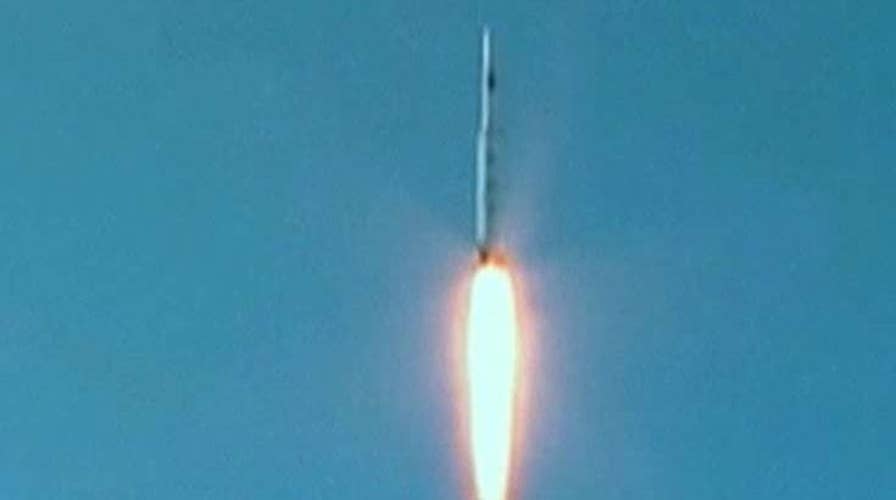North Korea fires missile into Japanese waters
North Korea claims the U.S. declared war by imposing trade sanctions
In what has become an increasingly common occurrence, North Korea attempted to launch two more ballistic missiles in violation of U.N. Security Council resolutions barring such tests.
One of the two No Dong intermediate range missiles exploded shortly after takeoff Wednesday morning.
The other missile flew over North Korea and into the Sea of Japan according to the U.S. military's Strategic Command which tracks missile launches around the world.
"We strongly condemn this and North Korea's other recent missile tests, which violate UN Security Council Resolutions explicitly prohibiting North Korea's launches using ballistic missile technology," Pentagon spokesman Cmdr. Gary Ross responded. "We call on North Korea to refrain from actions that further raise tensions in the region and focus instead on taking concrete steps toward fulfilling its commitments and international obligations."
Both missiles were were launched simultaneously according to a statement from Stratcom, which said the missiles did "not post a threat to North Korea."
The launches have already drawn a strong rebuke from Japan. Its defense ministry said one missile landed within its 200-mile economic zone surrounding the country.
Japan's prime minister called North Korea's actions an "unforgivable act of violence." The U.S. military has thousands of personnel stationed in Japan.
The latest North Korean missile tests came a month after the U.S. and South Korea agreed to deploy an advanced anti-missile system to South Korea. North Korea strongly objected, vowing a "physical response."
The new THAAD missile system is not supposed to be operational in South Korea until the end of 2017. China has also voiced its displeasure with the move.
In March, President Obama approved new sanctions against North Korea days after the U.N. also took additional measures as well.
North Korea attempted its fourth nuclear test in January and has been conducting ballistic missile tests frequently in 2016.
There are indications North Korea is preparing a fifth nuclear test according to reports.
The Korean Peninsula remains in a technical state of war because the 1950-53 Korean War ended with an armistice, not a peace treaty. About 28,500 U.S. troops are stationed in South Korea.
Fox News' Lucas Tomlinson and The Associated Press contributed to this report.

